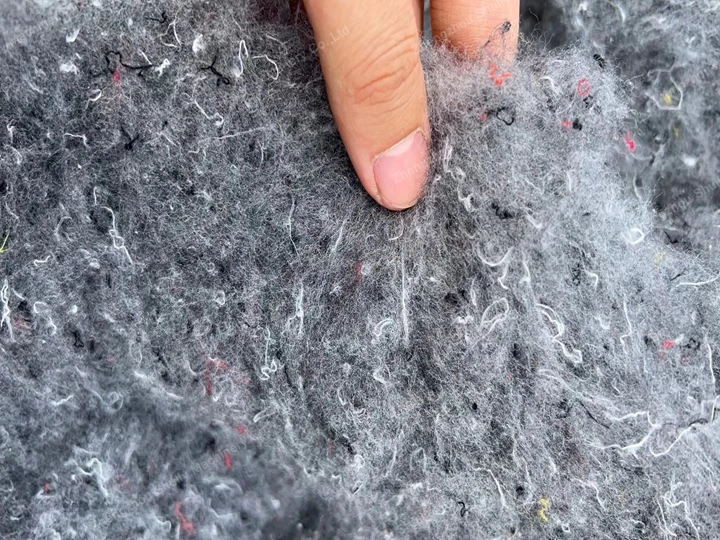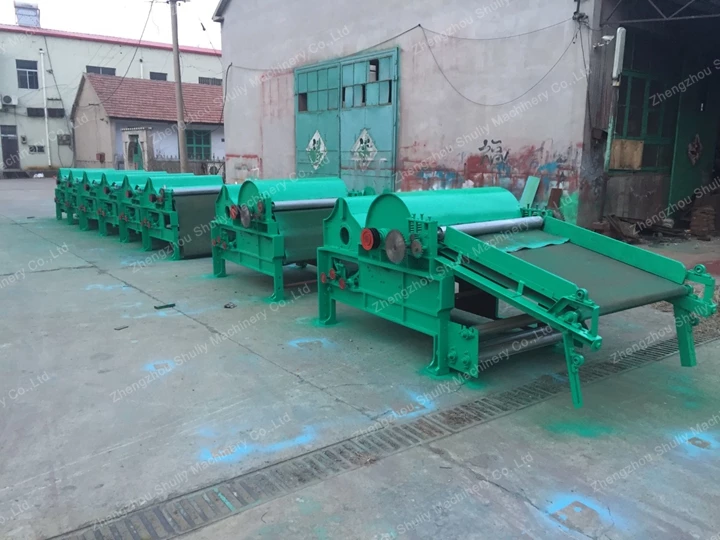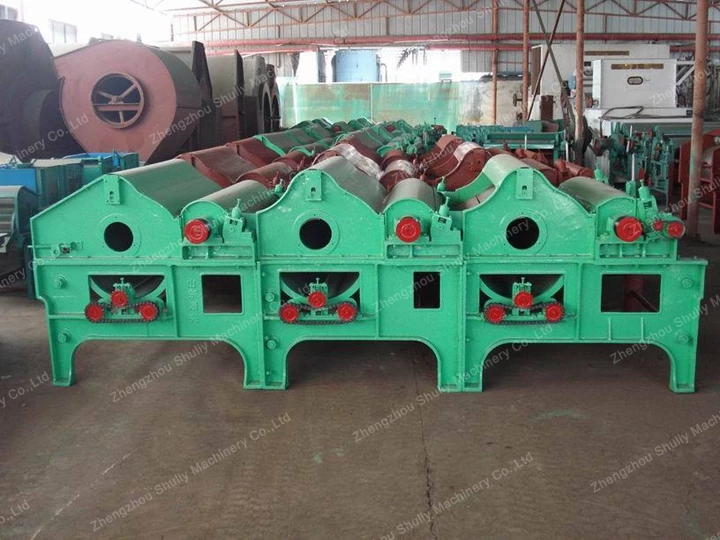Máy mở sợi nhiều con lăn chủ yếu dùng để nới lỏng sợi, bông, dệt và các vật liệu khác. Nó có thể nới lỏng các sợi rối lớn thành các mảnh hoặc bó nhỏ bằng cách xé, trong khi trong quá trình nới lỏng kèm theo sự trộn lẫn và tác dụng khử nhiễm sợi và sợi.
Trong quá trình làm việc thực tế, chúng tôi thường gặp phải hiệu quả mở sợi kém của máy mở sợi do thao tác không đúng. Nhà máy Shuliy đã tổng hợp 6 yếu tố phổ biến ảnh hưởng đến hiệu quả mở của máy mở, hy vọng điều này sẽ giúp bạn sử dụng máy mở sợi một cách chính xác.

Tại sao chúng ta sử dụng máy mở sợi?
Kéo sợi với nhiều loại nguyên liệu sợi khác nhau, chẳng hạn như bông thô, len, sợi xơ hóa học và bông, cây gai dầu, polyester, giẻ lau, v.v., chủ yếu ở dạng bó áp lực vào gói đưa vào nhà máy dệt. Mật độ đóng gói nguyên liệu thô thường là 200 ~ 650 kg / m 3. Mật độ đóng gói bông thô của Trung Quốc khoảng 330 ~ 400 kg / m 3.
Để kéo sợi có chất lượng tốt, trước tiên cần phải làm tơi nguyên liệu thô, loại bỏ các loại tạp chất để trộn đều. Chất lượng nới lỏng của nguyên liệu sợi có tác động quan trọng đến chất lượng bán thành phẩm và sợi, cũng như tiết kiệm nguyên liệu, v.v. Vì vậy, nhiều nhà máy dệt cần có một máy xé sợi chất lượng cao.

Các yếu tố chính ảnh hưởng đến hiệu ứng mở sợi
- Cho ăn định lượng vào dụng cụ mở. Lượng xơ nạp vào máy mở cần phải đúng lượng vì khi cấp thêm xơ, xơ chưa kịp được chích vào băng tải con lăn được đưa vào quạt. Dưới tác động của luồng không khí, sợi và sợi, các bó sợi và bó sợi sẽ cọ xát vào nhau, hình thành các bó sợi lớn hơn. Điều này không những không có tác dụng mở mà còn làm tăng sự vướng víu giữa các sợi, ảnh hưởng đến hiệu quả của việc mở máy nhiều con lăn. Vì vậy, chúng ta nên chú ý đến lượng thức ăn của dụng cụ mở và trải đều nguyên liệu thô trên màn nạp.
- Khoảng cách cuộn cho ăn. Khi máy mở sợi nhiều con lănKhoảng cách cuộn nạp của lớn sẽ ảnh hưởng nghiêm trọng đến hiệu quả mở sợi. Điều này là do khoảng cách giữa các cuộn tăng lên và độ bám của các cuộn trên sợi sẽ giảm đi. Vì vậy, bó sợi trong ổ lăn có thể dễ dàng kéo ra khỏi miệng gắn con lăn và không thể phát huy tác dụng mở. Ngược lại, nếu khoảng cách quá nhỏ thì nguyên liệu cấp liệu sẽ rất nhỏ, ảnh hưởng đến tốc độ mở.
- Khoảng cách giữa các răng kim giữa con lăn nạp và con lăn nỉ. Khoảng cách này phải dựa vào độ dài của sợi hở để xác định. Nếu chiều dài sợi kéo dài thì khoảng cách có thể lớn hơn; nếu chiều dài sợi kéo sợi ngắn thì khoảng cách phải nhỏ hơn, kích thước cụ thể của khoảng cách phải căn cứ vào độ dài của sợi và kinh nghiệm sản xuất để kiểm soát.
- Tốc độ đâm con lăn. Trong sản xuất, nếu tốc độ cuộn rất nhanh, nạp nguyên liệu thô trên một đơn vị chiều dài với số lần mở tăng lên thì lực mở cũng tăng tương ứng, do đó hiệu quả mở được tăng cường. Tuy nhiên, khi tốc độ cuộn tăng lên, sợi rất dễ bị rách khi cuộn cuộn quay với tốc độ cao. Vì vậy, trong quá trình nới lỏng, đặc biệt là khối sợi và lực cản nới lỏng lớn hơn, tốc độ của con lăn không được quá lớn.
- Tốc độ quạt. Tốc độ của quạt phải được chọn chính xác. Nếu tốc độ quạt quá lớn, các khối sợi sẽ bị quạt hút đi trước khi chúng kịp mở ra. Nếu quá chậm, các sợi sẽ không được chuyển giao kịp thời và dễ bị cọ xát thành các khối sợi, ảnh hưởng đến hiệu quả mở.
- Trạng thái của kim lăn chích. Răng của kim phải rất sắc và có thể đâm thủng sợi, vào sợi để mở. Vì vậy, chúng ta cần đảm bảo rằng răng kim của máy mở sợi nhiều con lăn trơn tru và bề mặt kim phẳng để tránh sợi bị móc và ảnh hưởng đến hiệu quả mở sợi.

